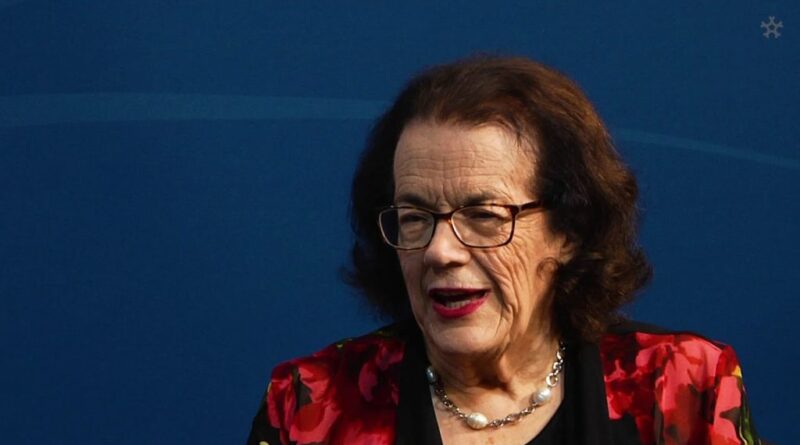Senate knocks out regulation allowing ARENA to fund carbon capture and blue hydrogen

The Senate on Tuesday night disallowed a government regulation that would have allowed the Australian Renewable Energy Agency (ARENA) to invest in technologies such as carbon capture and storage and blue hydrogen using fossil fuel.
Labor, Greens and crossbench votes defeated the regulation, so preventing the expansion of ARENA’s remit beyond its present area of solar and wind renewable energy.
The regulation would have enabled ARENA to support a wide range of technologies.
They would have included energy efficiency projects, carbon capture technologies, blue hydrogen from gas using CCS, energy storage technologies to back up renewable energy, technologies that reduce emissions from aluminium and steel, and soil carbon.
The $192.5 million new funding involved included money for electric vehicle charging infrastructure, microgrids in rural and regional areas, and technologies to make heavy trucks more fuel efficient and to reduce the energy consumption of heavy industry.
Energy minister Angus Taylor tweeted after the vote: “Labor have shown their true colours – opposing investment in new clean technologies which will create jobs and economic opportunities”.
Greens leader Adam Bandt said the disallowance was “a massive blow to this coal and gas-fired government”.
“First the Liberals tried to abolish ARENA and then redirect its funds to coal and gas, but by backing the Greens motion, the Senate has just saved ARENA,” Bandt said.
Labor’s energy spokesman Chris Bowen tweeted: “The LNP keeps attacking ARENA and the CEFC [Clean Energy Finance Corporation] and Labor will continue to defend them”.
Mark Vaile declines chancellor position after campaign over coal connection
Education Minister Alan Tudge and outspoken Labor MP Joel Fitzgibbon have condemned the campaign that led former deputy prime minister Mark Vaile to withdrew from becoming University of Newcastle chancellor because of his association with the coal industry.
University staff, alumni and a group of donors to the university reacted strongly at the prospect of Vaile, who is chairman of Whitehaven Coal, taking the position.
The university is committed to becoming carbon neutral by 2025, a policy Vaile had said he supported.
But after the backlash he said, “I’ve just taken the view that it’s in the best interests of the university and the community that it serves if I decline the invitation and withdraw from the process.”
Tudge said it was very concerning Vaile had “been forced to turn down this role because of ideological pressure”.
“At a time when we are trying to promote and enforce free speech and academic freedom on campus, we should not have a very competent person forced out of an important job because of this cancel culture,” Tudge said.
Fitzgibbon, who represents the seat of Hunter, went further. “A new form of McCarthyism has crept into Australian culture and it’s alive and well in the Hunter region, deep in coal economy heartland”, he told parliament on Tuesday night..
He said “this 21st Century version of the Cold War doctrine has been on display at our local university where a quite extraordinary, misleading, ideological, and shrill campaign” resulted in Vaile declining the offer to be chancellor.
Fitzgibbon said “the crime” Vaile had been “publicly shamed for” was his association with the coal industry.
“It’s a slippery slope. Today the excessive progressives target those associated with the coal industry. No doubt tomorrow it will be anyone associated with the oil, gas, and fuel refining industries. What’s next? The meat processing industry? The steel manufacturing sector?”
Fitzgibbon pointed out that while chairing Whitehaven Coal, Vaile also chaired an investment fund which had $1 billion worth of wind and solar technologies under management.
Vaile was deputy prime minister from 2005 to 2007.

